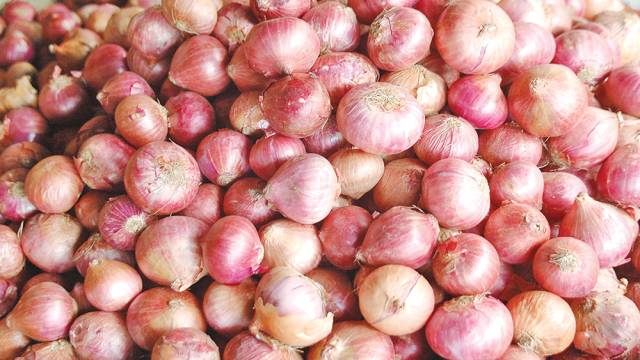 Daily Star Banner
Daily Star Banner

Amid the price hike of onion in the country's market due to Indian decision to impose 40 per cent tax on exporting the important kitchen commodity, Bangladesh government is likely to issue import permits to the importers, so that they can import onion from any country across the world.
Agriculture Minister Dr Muhammad Abdur Razzaque on Monday gave the hints considering the sufferings of the country's people regarding price hike of the kitchen item.
While talking to media at his Secretariat office, Dr Razzaque said, "We don't have any mechanism to control the onion market immediately after increasing the price of Indian onion. Now, we have another option to import onion from other countries along with strengthening the monitoring."
"We are now giving permission to import from other countries along with the traditional markets," Razzaque said, adding, "The importers are now allowed to start importing onion from other countries from tomorrow (today). If anyone wants to import the commodity from China, Turkey, Japan, Iran, and Egypt, they will also be given permits."
Within a day of imposing 40 percent tax on onion export in India, the price of onion in the country's market started jumping indiscriminately. In the wholesale market, every kilogram of onion was sold at Tk60 to Tk65 while it was sold at Tk75 to Tk80 per kg in the retail market.
Earlier on Saturday, the Indian government imposed a 40 percent duty on overseas sales of onions. The impact of the Indian decision has started falling in the market as the markets in Dhaka as Bangladesh depends at least to some extent on the neighbouring country for the kitchen staple.
At Karwan Bazar, the largest commodity marketplace in the Bangladesh capital, onions from India were being sold at Tk 300-330 per 5 kg lot on Sunday - a Tk 8 hike per kg in a day. Same situation was also prevailing on Monday's kitchen market.
The importers started to increase prices even before the arrival of the produces brought with the increased duty, said Hanif Mia, a trader of imported onions at Karwan Bazar.
Speculations that India will halt exporting onions have caused the hike, he said.
The price of locally produced onions increased to Tk 400 per lot of 5 kg from Tk 350 in a day.
Lutfor Rahman, who sells locally produced onions, said the wholesalers who bring the produces from other districts increased the price after the news of India's decision to impose export duty broke.
Shariful Islam, a grocer, came to the market to buy onions before a price hike, but the prices were already up. He bought locally produced onions from Karwan Bazar at Tk 80 per kg.
"Now guess how much I have to charge my customers to make a profit," he asked.
Online grocery shop Chaldal was selling locally produced onions at Tk 85 a kg and imported onions at Tk 65 on Sunday.
Mohammad Shahid, president of Agriculture Product Merchants Association at trade hub Shyambazar, said the traders and importers were discussing a price hike after India announced the export duty.
He claimed wholesale prices of onions were not increased until Sunday.
The merchants were selling Indian onions at Tk 42-44 per kg and locally produced onions at Tk 70, he said. "But it is understood that the prices will start to increase on Monday," said Shahid.
"Although it will take some days for the export duty to affect the market, the importers will take advantage of the decision.
"However, India hasn't halted exports yet. Bangladesh's market won't see much instability until India stops sending onions."
On Sunday, Agriculture Minister Abdur Razzaque claimed that he believes India's decision to impose export duty will not affect prices in Bangladesh much.
The importers have brought 300,000 tonnes of onions after the government approved the imports of 1.3 million tonnes, according to him.
"It means we have enough onions in our country now. Field reports suggest the stocks of our farmers are also sufficient," he said.
India's decision may lead to a rise in prices temporarily, Razzaque said.
If necessary, Bangladesh will try to import onions from Turkey, Egypt and China, he said.
